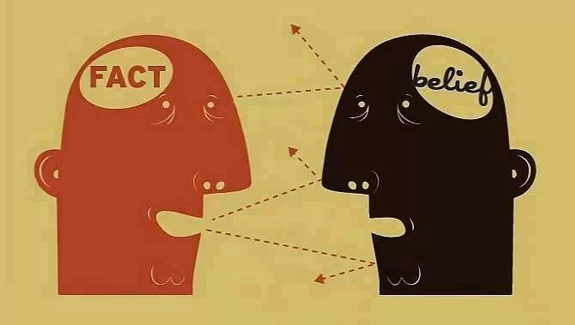What a Know It All!
Despite the fact that many think I’m a know it all, I promise there is a lot that I don’t know. I know nothing about Zoology, Psychology, Cardiology, Physics, Videography, Graphic Design, Biology, Mathematics ( literally cannot do fractions) I mean the list could literally go on and on…this is a really small sampling of all that I don’t know.
Pride Comes After My Insecurities!
Which, being such an intellectual (there he goes again, what a big know it all!) it has been hard on my own Insecurities, which has led to pride as a cover-up for those insecurities. At this point in my life I’m fairly certain that pride is really just rooted in deep insecurities. All the prideful people I know are deeply insecure people. Added to all that there is a level of fear in not knowing. Especially as it relates to the Christian Faith. Much of the theological world in America is saturated by that old heresy called Gnosticism.
What the hell is Gnosticism and what does it have to do with fear of not knowing it all??
Well Gnosticism is what many of us Christians believe: that, “the material world is a shabby, corrupt place to be endured while we have to and escaped when we can.” (NT Wright) Essentially this old heresy, which keeps rearing its ugly head, says that the world is bad, spirit and spiritual things are good, we have an immortal soul (or spirit), that when we acquire knowledge we will receive salvation in the form of our soul leaving our bad corrupt bodies and escaping to a spiritual place away from this physical world. In other words what most of us were taught as the gospel: that you are saved by your knowledge (of the gospel) and salvation is escape from “the world” (which is always seen as bad) to heaven (a spiritual place), is the heresy of Gnosticism.
The Enlightenment Really Screwed us Over
Why have I got on this seemingly unrelated tangent? Because much of the fear of not knowing for me and I think many Christians in America is caused by this Gnosticism. If you’re saved by knowledge it would then seem pretty important to have that knowledge that indeed saves you. This new rendition of Gnosticism in the church today combined with the modernist understandings of epistemology (which is the branch of Philosophy that asks how do we know things) that come from the Enlightenment (and which all Americans share whether their Southern Baptist, Episcopalian, Catholic, Liberal, Conservative or what have you) teaches that one can have intellectual certainty. In other words, one can have complete certainty of knowledge. For Fundamentalists Evangelicals this certainty comes in the form of an Inerrant Bible. For Liberal Protestants and Atheists, it might come in the form of insipid scientism that through science we can have certainty of knowledge. Both have the same epistemology (which is called foundationalism) that says they can have certainty. They just have different answers for what provides that certainty of knowledge.
1st Century Faith VS. Modernism
So with that added layer of historical development not having it all figured out can be pretty scary! But here’s the thing, Gnosticism is heresy, not something we should have ever affirmed in the first place, and the epistemology that came out of the enlightenment is absolute crap. Before the enlightenment Christians or anyone for that matter would never have asked the question, “Can I know this with certainty?” That question came out of the enlightenment. The concept of belief or faith in the 1st century which we find in the apostolic witness (New Testament) is not of intellectual certainty in a list of doctrines that we need to know in order to be saved. If you’re getting that from the New Testament then you’re reading the enlightenment and Gnosticism into the text. Faith or belief in the 1st century really means more of relational trust in a person, the person of Jesus and by extension the rest of the Triune God-head.
What’s Humility?
How could finite human beings ever think that we could know something with certainty? Not only is this arrogant (in the sense that it implies that not only do we have the capacity to know all things but that we do know all things. Only can you know with certainty about something if you know all that which is knowable), but it also is exhausting! Trying to know everything and therefore know what you know with certainty is enough to drive us straight off a cliff. But God is who infinite mystery above and beyond all human comprehension is the only one that can have this intellectual certainty. We are not expected, nor do we have the capability, to have God or God’s creation all figured out. We can rest in the mystery rather than trying to wrap our minds around it. Truth (who is God) is not something we can grasp but something we enter into, that we allow to envelop us.
Don’t Have To Be An idiot Or A Skeptic
Now that being said, it doesn’t mean we need to be anti-intellectual. These are two extremes to avoid, on the one hand trying to have everything figured out, and on the other hand rejecting all rationality. God has given us the ability for thought, and reflection (for rationality) but this is limited as we are limited. There are some things that are not irrational, but trans-rational going above our ability to comprehend, and that’s what we call mystery (i.e. God).
Diving Into God
The whole reason I’m addressing this issue is recently a friend of mine had a bit of a freak out digging through a bunch of theology he hadn’t been exposed to in the past. And the prospect of not knowing what he thought about all of it was overwhelming. He’s not the only one. Its taken me a long time to learn I don’t need to have it all figured out. I can rest in Trust of my good God, even all the while I delve deeper into the mystery that is our Triune God revealed in Jesus Christ, the Son and Word of God.




